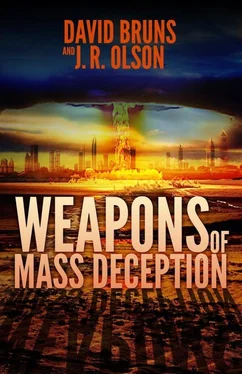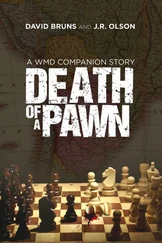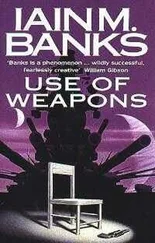“You have news for me, Hashem?” His voice took on a hopeful tinge.
“I have the devices, Your Eminence,” Hashem replied. He could barely contain the excitement in his voice. “The weapons that will allow you to fulfill the will of Allah.” It was all he could do not to laugh out loud at his brother’s openmouthed response.
“How?”
“Saddam was terrified the Americans would find their weapons of mass destruction.” Hashem nodded at the silent screen where Saddam’s golden statue was falling for the hundredth time. Al Jazeera and CNN were rife with talk of the mysterious WMDs, but no one could find them. The Americans were rapidly becoming the butt of an international joke.
“It seems he had good reason to be concerned. Technically we are only holding them for safekeeping, but I think we can assume they are ours now.” He laughed. In the first Gulf War, Iran had held Iraqi warplanes for “safekeeping.” The Iranian Air Force still used those planes today. Safekeeping indeed. Still, there was a big difference between a MiG fighter and a nuclear warhead.
“Do the Americans know we have them?” his brother asked.
Hashem shook his head. “I took precautions.” I should have killed Uday.
Aban’s belly quivered beneath his robes, and he beamed at Hashem. “Brother, you are truly a man of your word.”
Hashem knew what this could do for Aban’s career if — when — they executed an attack. A strike against Israel would make Ayatollah Khomeni’s shot to international stardom following the 1979 overthrow of the Shah seem like child’s play. Aban would become a world leader overnight; President Bush would have his Axis of Evil words turn to ashes in his mouth.
Still, there was work to do before they were operational weapons. Much work to do. He cleared his throat.
“There are complications, Aban,” he said. “The Iraqis developed warheads, but their work was sloppy, rudimentary at best. It will take time to make them viable weapons and secure missiles and launching systems for them — outside normal channels, of course. In the meantime, I have established a base at—”
Aban held up his hand. “Please, do not say. For now, the less I know about this, the better. I trust you, Hashem, and that is enough.”
Hashem swallowed his words. The hiding place was the best part of the plan.
He could recall the trip as if it were yesterday. Just the three of them: Aban, him, and their father. Hashem had been barely fourteen years old. His favorite memory of that three-week trip was listening to his father and Aban talk by the campfire about rocks and mining and uranium deposits. Aban had just received his PhD and was eager to show off his knowledge to their father. That trip was when Hashem decided he was going to be a geologist, too.
They made camp in the Zagros Mountains, a remote site, barely accessible by their four-wheel-drive vehicle. They found the cavern one afternoon during their second week: a vast space at the base of a mountain, half the size of a soccer pitch, with a level, sandy floor and an entrance large enough for their truck. He could see his father and brother even now, standing in the glare of the headlights speaking about the formation of the natural wonder in hushed tones as if they might wake some sleeping giant. His father put his arm around Aban’s shoulders. At that moment, Hashem wanted nothing more than to be like his brother.
That trip was the end of innocence for Hashem in so many ways. Within the next year, his father was dead, the Shah had fallen, and Aban’s always-present religious tendencies had bloomed into an obsession.
And Hashem was alone.
He entered university the next year, but he was not able to study overseas like his brother. By his sophomore year, he had been recruited by Ettela’at as an intelligence officer.
Aban was nodding at him, still smiling, and Hashem shook his head to clear it of these random memories.
“We have time, Hashem,” he was saying. “As the Americans say, we have many balls in the air. We must be patient while the situation clarifies for us. Patience and victory are twin sisters; one does not exist without the other. Our greatest asset is our secrecy, brother. Above all, you must preserve that — especially in your international dealings.” He placed his hand on Hashem’s knee. “We must be prepared to wait — years, if necessary — for the right moment.” Hashem met his brother’s eyes. The Friday sermon fire had returned.
The plump hand tightened on his knee. “And above all, my brother, we must have contingencies. You have considered the possibility that our primary objective may not be possible?”
Hashem nodded. Israel was a hardened target and getting worse with every passing month. Soon the Israeli Arrow system, an advanced version of the American Patriot surface-to-air missile defense system, would be operational. In truth, the Iraqi weapons were low-yield, his expert told him no more than four or five kilotons each. Poor by international standards, but enough to destroy a medium-sized city — assuming it reached the target.
No, Aban was right: contingencies were needed to make a proper statement to the world.
“I will call Rafiq,” he said. “Perhaps he can help.”
Aban clapped his hands. “Hezbollah, an excellent idea!” His grin darkened and he narrowed his eyes at Hashem. “I’ll leave it to you as to whether or not the bastard can be trusted.”
Aban stood, and just like that, he became His Eminence again. His features took on the gravity of his office and he even seemed taller, slimmer. Hashem knelt again. Aban placed his hand on Hashem’s head. “Rise, my brother. Please.” He stared into Hashem’s eyes, then kissed him on both cheeks. “You are an instrument of Allah, my brother. I have faith in you.”
In spite of himself, Hashem felt a lump in his throat, and tears stung his eyes. He mumbled an inaudible reply, a flush of embarrassment creeping up his neck. His brother was the only man who could draw such emotions out of him.
Aban stepped away and called out. His bodyguard filled the doorway again. Aban snapped his fingers and pointed to the table. The bodyguard, a hulking man with a clean-shaven head and eyes set too close together, dropped an aluminum briefcase on the table with a thump. He stepped aside to let Aban pass, then followed the cleric out the door.
Hashem had a cigarette out and his lighter fired before the door even clicked shut. He drew deeply, letting the smoke calm his lungs, allowing it to trickle out of his nostrils before he blew a long stream at the ceiling. He smoked the entire cigarette and started a second before he laid the briefcase flat on the table. He carefully dialed the combination on the lock. 4-30-80. The date of their father’s death. The locks made a loud clack in the empty room as he opened the lid.
Green and white bills, neatly banded and stacked, filled the case. He pulled one stack and flipped through the bills, letting the flutter fan his face. Hashem took another deep drag on his cigarette as he felt the sides of his lips curl into a smile.
American cigarettes, American dollars, American destruction. The symmetry was beautiful.
He reached into his breast pocket for his mobile phone and sent a text to a cut-out number in Lebanon.
While he waited, he stared at the silent TV screen, watching Saddam’s statue fall again and again.
United States Naval Academy Graduation, Annapolis, Maryland
23 May 2003 — 1400 local
Liz Soroush air-kissed her mother’s cheek, careful not to let the older woman’s makeup mark her dress blues.
The limo driver stood to one side, hand on the car door, a permanent half-smile on his lips. Liz’s mother, elegant in a pink suit from some famous designer, tucked a stray strand of hair behind her daughter’s ear.
Читать дальше












